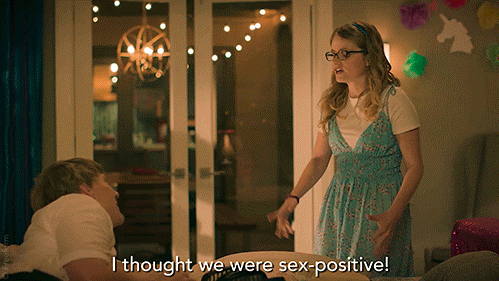It was a sweltering afternoon in April 2020. With nothing to do during the pandemic, I decided to take a short work break that could turn into a 3-hour long afternoon siesta. I turned on Netflix in a hopeless attempt to fall asleep when I came across the show – Too Hot to Handle. Here’s the premise: a group of attractive, single people who love to have sex. But with a twist. They were put on a journey to find a true connection, not lust alone.
Today, the show has 3 seasons with over 51 million views in season 3 alone! But here’s the catch: why did the show get this popular? Unlike most other reality shows, this show has (mostly) one focus – SEX! A concept unlike any other grabbed the attention of several million viewers and got us talking about sex, a topic not many people talk about openly or comfortably.
What does that say about us as a society? For a population of 1.39 billion people, we are obviously having sex, and a lot of it. But why can’t we talk about it?
What does it mean to be sex-negative?
In more technical language, it means that we are a sex-negative society. It’s not on you, it’s on us as a society. The odds are that if you are not sex-positive, you are probably sex-negative. But what does that mean? Aida Manduley, a sex educator, explains that sex-negativity approaches to sex and sexuality from a place of fear, oppression, and stigma. Fear not, we’re here to tell you how you can become sex-positive. Let’s start with understanding what that means.
What does it mean to be sex-positive?
In a nutshell, being sex-positive involves having a positive attitude toward sex, and feeling comfortable with your sexuality, and the sexual behaviours of others. It reinforces the message that sex is not something to be ashamed of. It entails a shift in thought processes, values, and attitudes to replace shame with pleasure and judgment with freedom. Most importantly, sex positivity values consent, communication, and education that allows people to make choices about their bodies and pleasure.
The sex-positive movement is now largely amplified on social media and new media and focuses largely on safe and consensual sex, regardless of its nature, a movement that is completely judgment-free. Let’s talk about the history of the movement, to build context for where we are today.
A little bit of history for you:
The sex-positive movement started in the 1920s and is credited to psychoanalyst Wilhelm Reich. Contrary to popular belief, he said that sex was a good and healthy activity to engage in. But really, it began in the 1960s with the sexual revolution, a social and political movement. The movement in the 60s began as a response to patriarchal views imposed on the sexuality of women. The movement, feminist in nature, began with the aim to encourage healthy sexual expression for women first and people of all genders later.
Theo Burnes, a practicing psychologist says “One of the things that really started that movement is this idea that sexuality has been often talked about as secretive, shameful, unhealthy, and that being overtly sexual in any kind of way—whether that’s talking about it, whether that’s having conversations about it—is problematic. The movement tries to say, ‘Hey, wait for a second, this is a part of our normative development. And it’s not necessarily unhealthy or shameful, but having these conversations, exploration with sex when consent and trust and communication are part of the sexual process is not wrong or unhealthy.'”
What makes someone sex-positive?
Theory apart, who is a sex-positive person? I’ll try to list a few traits down so you have a better picture.
- They are open to learning about sex and sexuality – the emotional, psychological, and physical aspects of intimacy. They respect the sexual preferences and dislikes of their partners.
- They understand the importance of safe sex – for themselves and their partners.
- They are chill with other people’s sex lives – as long as there is consent. They are non-judgemental with people who have different sexual preferences like threesomes or partner swaps.
- They communicate excellently to make sure that all partners get maximum pleasure from their sexual experiences.
- They are huge advocates of healthy sex education involving consent, communication, and safety. They don’t support abstinence-only or fear-based sex education.
In the next section, I’ll give you a few examples of some of the questions you can ask yourself when you feel uncomfortable in situations that involve sex.
That being said, I’ll come back to my first question – why can’t I talk about sex? A large part of the problem is rooted in how we are made to feel when we talk about sex. When I talk about sex with friends and family, I’m looked at in horror or disgust. But when I talk to a potential partner about pleasure and desire, I am sexualized. I am slut shamed.
The sex-positive movement is NOT about having a higher number of partners, a higher frequency of sex, or sexual arousal. It means being open-minded, judgment-free, and communicative about your sexual encounters or other people’s sexual encounters. We are creating a safe space to talk about sex.
That being said, the concept of being sex-positive can be complicated. In case you or a sexual partner has experienced sexual trauma in the past, processing that in the light of being sex-positive can be difficult. Another (more common) example of why being sex-positive can be complicated is if someone’s sexual experience does not align with your cultural or religious views. But that shouldn’t be a problem as long as you can be non-judgemental, communicative, and respectful. That’s all it is about.
How can you become sex-positive?
As I said, if you are not sex-positive, then you are most likely sex-negative. If you have made it here, I’m guessing you are either sex-positive yourself or are looking to become more sex-positive. So how does one become sex-positive? Or how can you make yourself more sex-positive than you already are? Here are a few tips that could come in handy.
The journey to becoming sex-positive may be a long one, which would require you to shift existing attitudes and thoughts you may have about sex. The journey requires patience, time, commitment, and bravery. It sounds like work – but a journey worth taking because the views at the top are spectacularly safe, communicative, and judgment-free. Doesn’t that sound like a dream?
Manduley says “It requires an ongoing dedication to becoming increasingly inclusive and aware. It requires a commitment to practicing anti-oppressive philosophies and practices.”
Where do you begin? “The first step is to notice all the times you’re not being sex-positive — likely because you grew up in a sex-negative culture”, Howard says. “For example, “Let’s say you think ‘slut’ when seeing someone in a crop top. “Ask yourself: Why did I react this way? Why did I feel like that?” Why does that make me uncomfortable? How can I be more accepting of this? What do I need to do to be more tolerant? It’s about unlearning traits that we grew up learning in a sex-negative society.
- You can start by normalizing sex – why is sex considered dirty when it is the only way we are born into this world? Why is sex taboo or vulgar or sinful? Think through this one, till you accept it as a normal part of your life.
- Second, Communicate – talk to your friends, family, or whoever you feel comfortable with. Start by asking questions you may have, or talking to your partner about what they want to do in bed. It is a tried and tested way of being more sex-positive.
- Third, Respect. Respect the idea of sex and consider it to be something important in your life or another person’s life. After all, it is an expression of love and lust. Respect your partner’s desires and talk to them about how you can make your life spicier.
- Fourth, Educate. Sex education in Indian schools is abstinence-only and fear-based. It’s time to change that. We want to raise children who are comfortable talking about sex. Communicative, consensual, and safe sex for future children of India.
That may sound like a far-fetched dream right now, but with you reading this, we are sure we will get there someday. If you think being sex-positive is important, we can build this India together. We got this!
Thank you for being wonderfully you and taking this journey with us to being more sex-positive. We promise you that one day we will build a sex-positive society together!












